Publications
Articles, publications, books, tools and multimedia features from the U.S. Institute of Peace provide the latest news, analysis, research findings, practitioner guides and reports, all related to the conflict zones and issues that are at the center of the Institute’s work to prevent and reduce violent conflict.
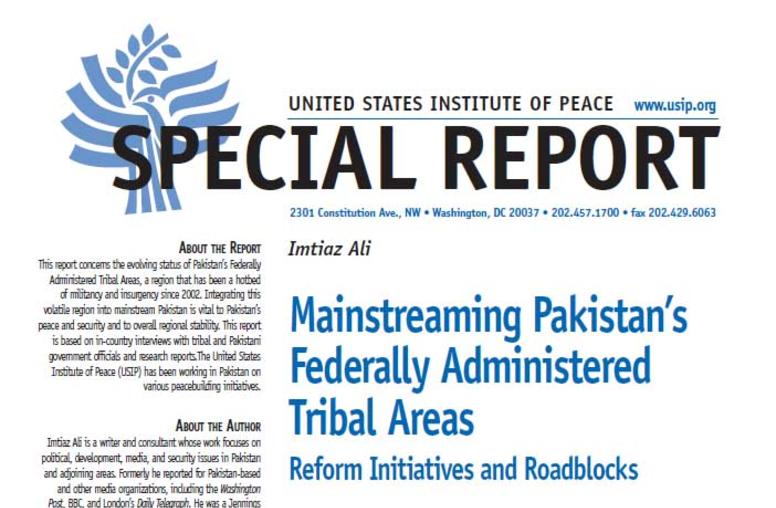
Mainstreaming Pakistan’s Federally Administered Tribal Areas
Pakistan’s government has recently approved mainstreaming of the Federally Administered Tribal Areas (FATA) in an effort to bring the FATA region within the legal and governance structures of the rest
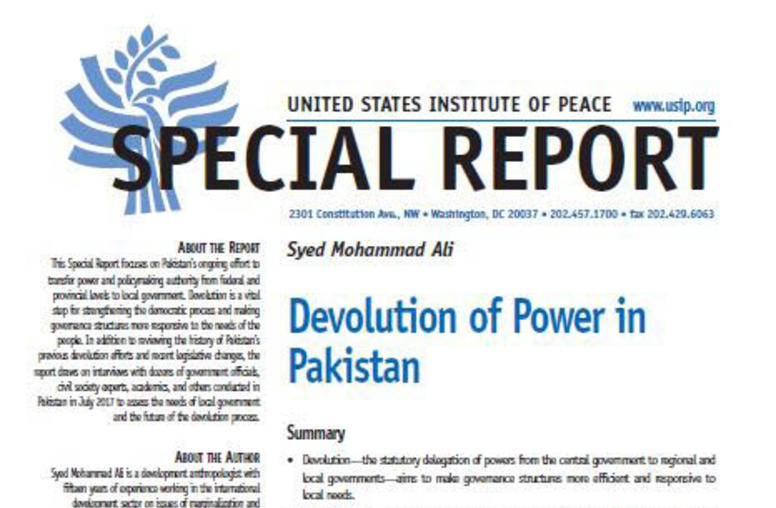
Devolution of Power in Pakistan
Passage of the eighteenth amendment to Pakistan’s constitution in 2010 was rightly hailed as a major accomplishment. Not only did it devolve significant powers from the central government to the provinces, it also mandated the formation of local governments to bring government closer to the people. It took half a decade for the provinces to set up local governments—and real decision-making authority and financial resources have been even slower to arrive. In this Special Report, Syed Mohammad Ali takes stock of Pakistan’s devolution process and why its success is critical to the long-term prospects of democracy and the cultivation of new generations of democratic leaders.
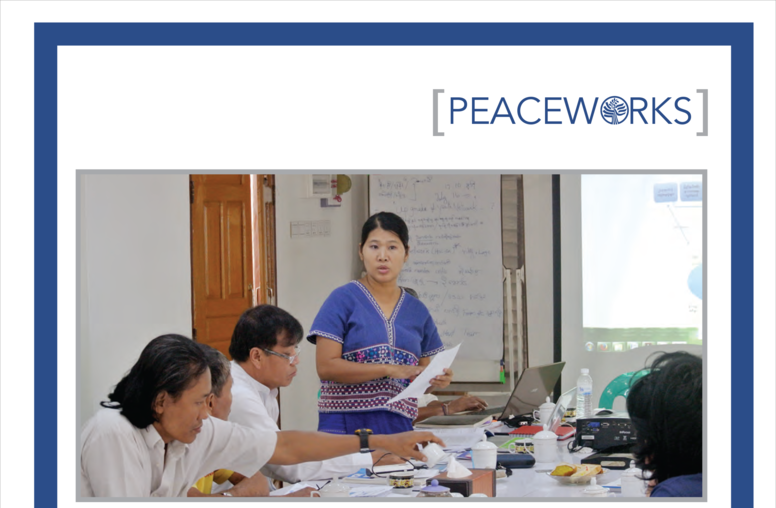
Nonformal Dialogues in National Peacemaking
Nonformal dialogues offer complementary approaches to formal dialogues in national peacemaking efforts in contexts of conflict. As exemplified by the nonformal dialogues in Myanmar, Lebanon, and Nepal examined in this report, nonformal dialogues are able to...
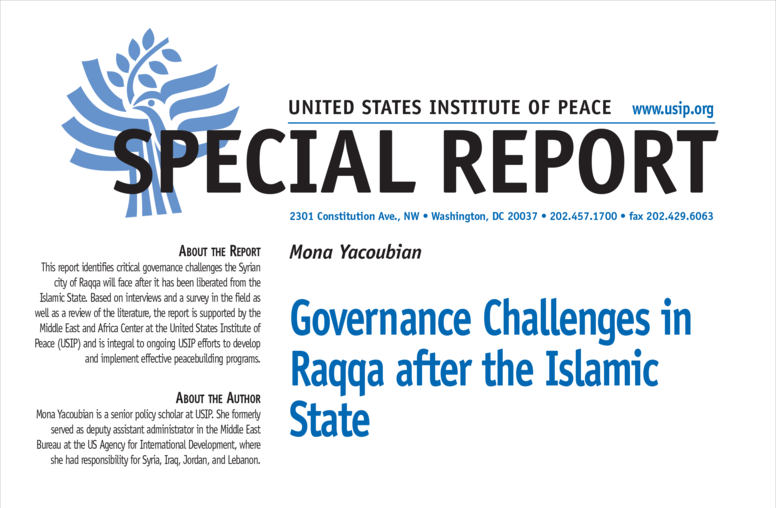
Governance Challenges in Raqqa after the Islamic State
The fall of the Syrian city of Raqqa—the capital of the self-proclaimed Islamic State (IS)’s caliphate—will be a critical defeat for IS. Yet the success of the counter-campaign will ultimately...
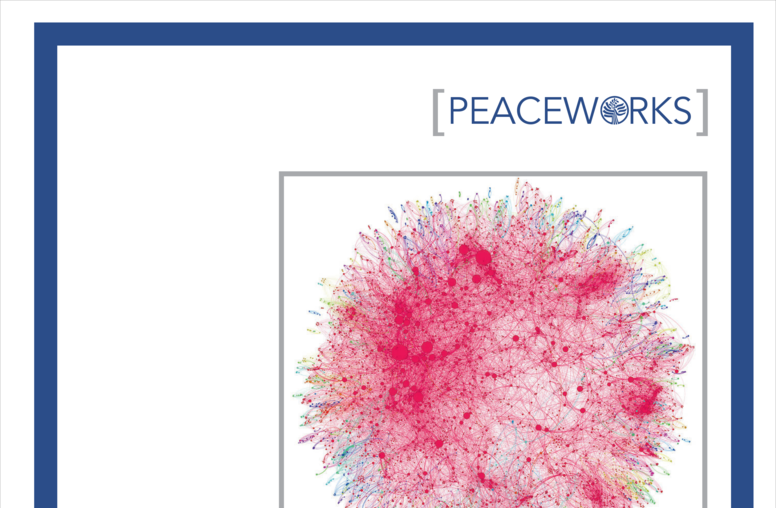
Systems Thinking for Peacebuilding and Rule of Law
Many peacebuilding interventions seeking to support rule of law get stuck. The reason they get stuck may have little to do with the law and its technical dimensions and more with a tendency to treat certain rule of law systems as if they were...
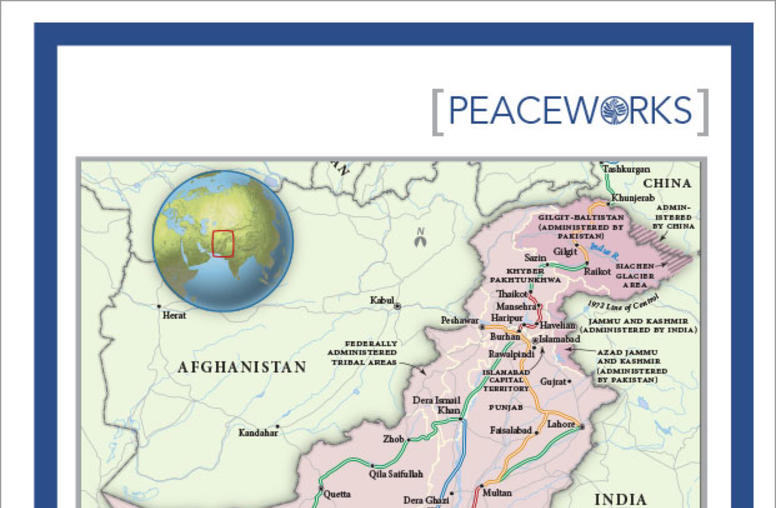
The China-Pakistan Economic Corridor
The China-Pakistan Economic Corridor (CPEC)—which connects China’s western province of Xinjiang to the Pakistan’s Arabian Sea coastline in Balochistan province—is the first large-scale attempt to bolster economic ties between Beijing and Islamabad, after decades of...
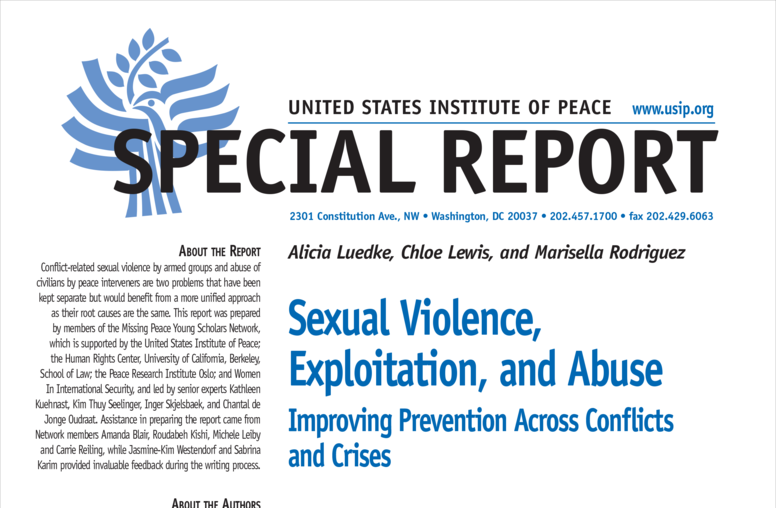
Sexual Violence, Exploitation, and Abuse
Former UN secretary-general Ban Ki-moon and current UN Secretary-General António Guterres have both recognized sexual exploitation and abuse (SEA) by interveners as a risk to peacekeeping operations, which has led to a series of new policy responses. As institutions begin to adopt new...
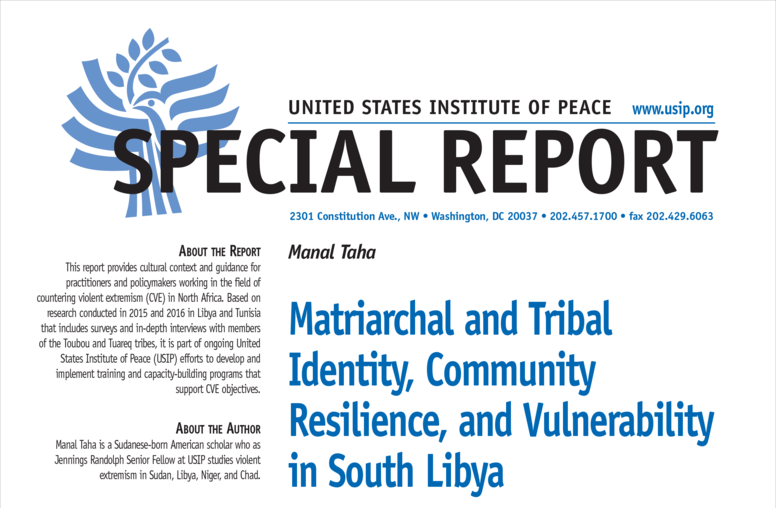
Matriarchal and Tribal Identity, Community Resilience, and Vulnerability in South Libya
Since the Libyan revolution and fall of Muammar Gadhafi in 2011, violent extremist organizations (VEOs) have taken advantage of the subsequent lack of security to secure a foothold in the country. The south, however, has proved resilient to VEO recruitment. This report examines the two...
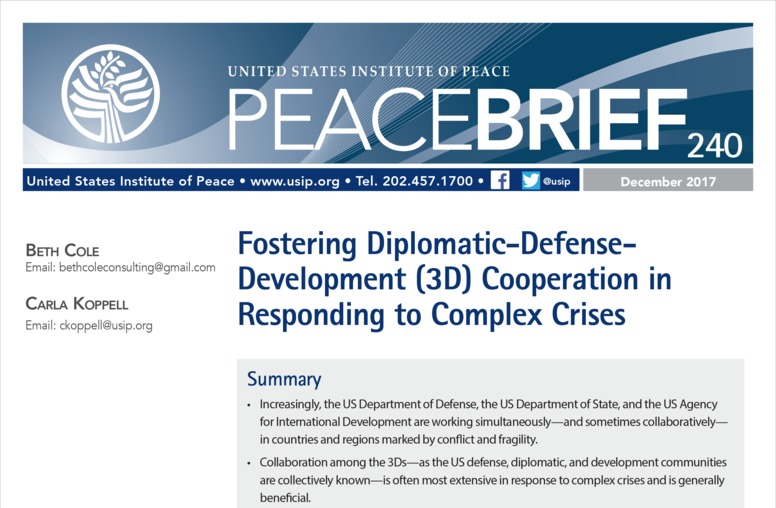
Fostering Diplomatic-Defense-Development (3D) Cooperation in Responding to Complex Crises
The US diplomatic, defense, and development communities (known as the “3Ds”) increasingly find themselves working together to tackle complex crises. This collaboration has already proved its worth, but how can it be made even more effective? A recent USIP research project sought to...
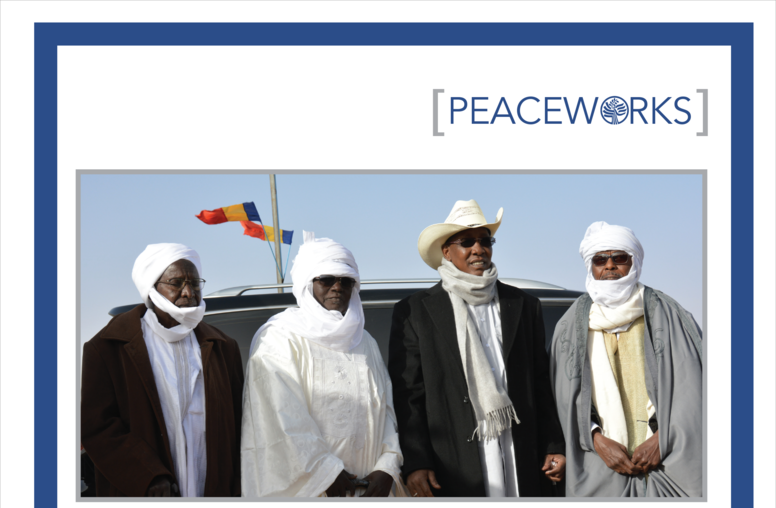
Déby’s Chad
Since gaining its independence from France in 1960, Chad has evolved from a one-party state into a multiparty regime, endured successive rebellions, and become an interventionist regional actor. Thanks to both an oil boom and corruption, segments of the Chadian elite have become very rich, but most of the population is...